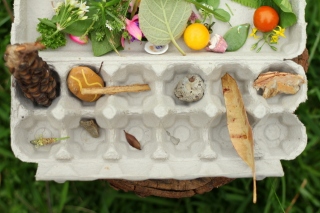1570 Theatrus Orbis Terrarum published, first modern atlas
 1609 Shakespeare’s Sonnets first published
1609 Shakespeare’s Sonnets first published
 1927 Charles Lindberg sets off on the first nonstop flight across the Atlantic; 1932 Amelia Earhardt does the same, first time by a woman.
1927 Charles Lindberg sets off on the first nonstop flight across the Atlantic; 1932 Amelia Earhardt does the same, first time by a woman.
 Josephine Baker Day – an American-born French entertainer who helped in the civil rights movement in America by refusing to perform for segregated audiences.
Josephine Baker Day – an American-born French entertainer who helped in the civil rights movement in America by refusing to perform for segregated audiences.
 World Metrology Day (celebrates the use of the metre) – how tall are you in metres? How far can you throw a ball? How far can you throw a flipflop?
World Metrology Day (celebrates the use of the metre) – how tall are you in metres? How far can you throw a ball? How far can you throw a flipflop?
European Maritime Day – so make boats out of everything!
Cuba Independence Day (from America, 1902)

Cuba was originally inhabited by ‘American Indians’ – the Taino/Arawak people. Christopher Columbus discovered it in 1492 and claimed it for Spain, whose settlers wiped out the natives in the usual manner (disease, oppression).
In 1549 the new governor, Dr. Gonzalo Perez de Angulo. liberated all remaining natives.
During the Seven Years’ War, Britain took Cuba from the Spanish. We already owned North America and other parts of the Carribean, so actually this was good for Cuba’s trade. Also we brought thousands of West African slaves to work in the sugar plantations. But then we swapped Cuba for Florida.
 Carlos Manuel de Céspedes
Carlos Manuel de Céspedes
In 1868 Carlos Manuel de Céspedes offered to free any slaves who fought with him for Cuban Independence, leading to the Ten Years’ War. In the end Spain offered them more self-control and in the 1880s abolished slavery.
An exile, Jose Marti, founded the Cuban Revolutionary Party in New York in 1892. In 1895 he joined Maximo Gomez, who led the war against Spanish rule then. The Spanish army outnumbered the rebel army and put them in prototype concentration camps called reconcentrados, where they died of starvation and disease. The US was against the Spanish on this, and declared war.
After the Spanish-American War (1898 – America won), Cuba belonged to America until it was granted independence in 1902. There followed a series of presidents, included the dictator Batista who took the seat through a military coup.

Then Fidel Castro took over, also by military force, and Batista fled to exile. Castro executed any rebels and legalised the Communist Party which Batista had banned. The US sent in CIA-trained Cuban exiles to assassinate Castro. This was the Bay of Pigs Invasion, 1961.
The next year Cuba asked Russia if it could have some of its nuclear missiles stationed on it, to put the US off further invasions. This was the Cuban Missile Crisis and was perhaps the closest the Cold War came to full-on nuclear war. Economy was poor, but this was partly because all American states had imposed trade sanctions. Soviet Russia had been supporting Cuba with about $5 billion a year, and when it collapsed in 1991 that was….bad. But Cuba refused American help until 1993.
Now China supports them. In 2008 Fidel stepped down and his brother Raul took over. In 2013 Cubans were allowed to go abroad without even having to be invited by the government (the previous terms). 180,000 left and returned. They don’t have democracy or perhaps much freedom of expression, but they have good healthcare and education. People from around Latin America and America itself go to Cuba for medical care because it’s good and cheap.
Cuban music is called Son, and the Rhumba comes from here. Ernesto Lecuona is a classical Cuban composer.
Other events today:
- Cameroon National Day – see 1st October
- East Timor Independence Day (from Indonesia, 2002)- see 30th August
- Indonesia National Awakening (leading to independence from the Netherlands in 1945) – see 17th August
- Cambodia Day of Remembrance (remembers Communist rule of Khmer Rouge in the 1970s, which killed and tortured masses of opponents) – see 9th November



 1609 Shakespeare’s Sonnets first published
1609 Shakespeare’s Sonnets first published 1927 Charles Lindberg sets off on the first nonstop flight across the Atlantic; 1932 Amelia Earhardt does the same, first time by a woman.
1927 Charles Lindberg sets off on the first nonstop flight across the Atlantic; 1932 Amelia Earhardt does the same, first time by a woman. Josephine Baker Day – an American-born French entertainer who helped in the civil rights movement in America by refusing to perform for segregated audiences.
Josephine Baker Day – an American-born French entertainer who helped in the civil rights movement in America by refusing to perform for segregated audiences. World Metrology Day (celebrates the use of the metre) – how tall are you in metres? How far can you throw a ball? How far can you throw a flipflop?
World Metrology Day (celebrates the use of the metre) – how tall are you in metres? How far can you throw a ball? How far can you throw a flipflop?

 Carlos Manuel de Céspedes
Carlos Manuel de Céspedes
















